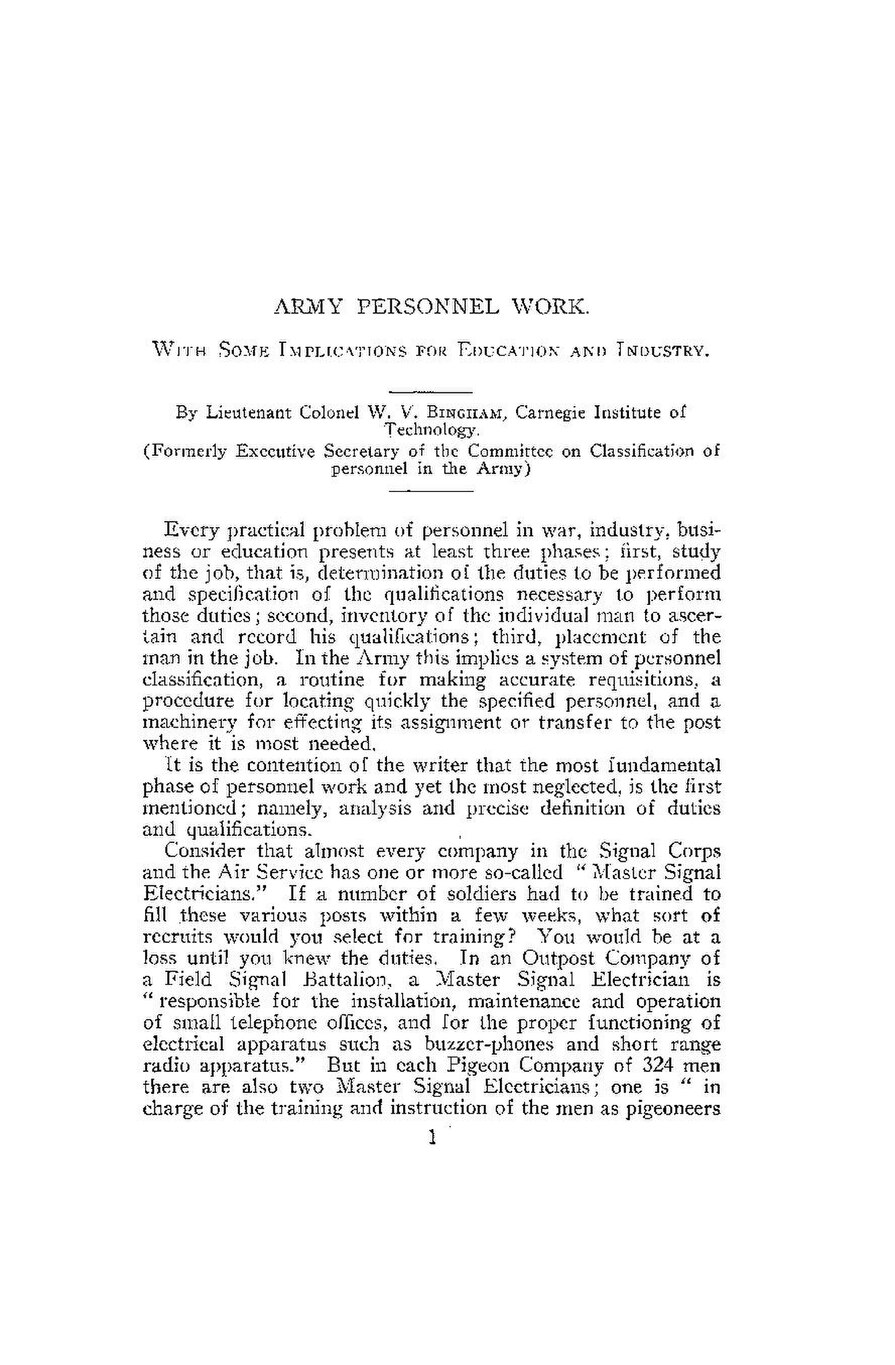ARMY PERSONNEL WORK.
With Some Implications for Education and Industry.
By Lieutenant Colonel W. V. Bingham, Carnegie Institute of Technology.
(Formerly Executive Secretary of the Committee on Classification of personnel in the Army)
Every practical problem of personnel in war, industry, business or education presents at least three phases; first, study of the job, that is, determination of the duties to be performed and specification of the qualifications necessary to perform those duties; second, inventory of the individual man to ascertain and record his qualifications; third, placement of the man in the job. In the Army this implies a system of personnel classification, a routine for making accurate requisitions, a procedure for locating quickly the specified personnel, and a machinery for effecting its assignment or transfer to the post where it is most needed.
It is the contention of the writer that the most fundamental phase of personnel work and yet the most neglected, is the first mentioned; namely, analysis and precise definition of duties and qualifications.
Consider that almost every company in the Signal Corps and the Air Service has one or more so-called "Master Signal Electricians." If a number of soldiers had to be trained to fill these various posts within a few weeks, what sort of recruits would you select for training? You would be at a loss until you knew the duties. In an Outpost Company of a Field Signal Battalion, a Master Signal Electrician is "responsible for the installation, maintenance and operation of small telephone offices, and for the proper functioning of electrical apparatus such as buzzer-phones and short range radio apparatus." But in each Pigeon Company of 324 men there are also two Master Signal Electricians; one is "in charge of the training and instruction of the men as pigeoneers
1
